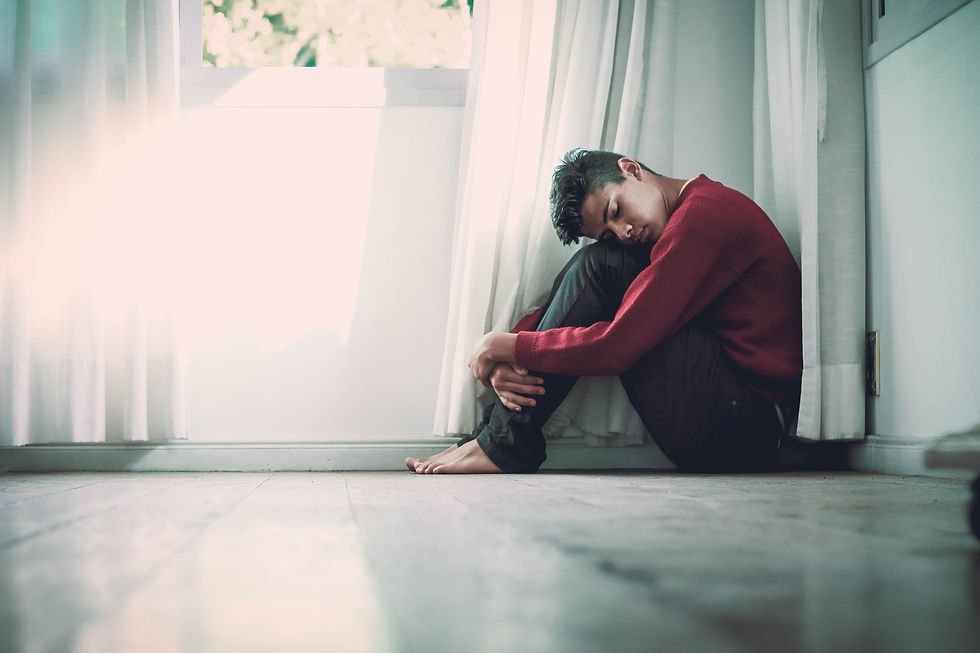Mental Health of Refugees in the UK: Providing a safe space for children, adults and the elderly
- Polygeia

- Jul 12, 2018
- 3 min read
Key points
The increase in the number of refugees in recent years has been unprecedented
According to the UNHCR 87% of refugees have reported mental health problems
Our research will make recommendations to make access to appropriate help possible for refugees of all ages suffering from mental health problems
65 million people around the world have been forced to flee their country to escape war or persecution. More than 150,000 of these refugees and asylum seekers are entering the UK annually. Currently, a network of agencies - including the UNHCR, WHO, government and not-for profit organizations - share the responsibility of providing mental health support to refugees. However, the reality remains that most refugees with mental health issues rarely have access to the required help.

Image Credit: UNHCR
The main barrier to mental health support is the scarcity and unequal distribution of the medical services available. Other factors at play include the complexities of getting national and international organizations to work in coordination, the language barriers that exist between the officials and the refugees and the financial constraints of providing infrastructure. Finally, the stigma associated with being a refugee, coupled with the stigma surrounding mental illness, must not be underestimated.
Nevertheless, a considerable number of studies have been carried out, which characterise and quantify rates of mental health disorders in refugees. In the UK, for example, the prevalence rates of post-traumatic stress disorder (PTSD) have been reported to be as high as 61% in young adult refugees from heavily damaged areas. Despite advances made in research and policy, there seems to be a slow convergence to a more efficient system. This study will aim to do a concise literature review of the number and types of mental health problems reported in refugees in the UK.
We will split our research into three distinct groups: children (up to 16 years old), adults and the elderly (above 60 years). From our research, most of the attention is focused on young adults, older than 16 years old and younger than 60. However, children are massively at risk of developing serious mental health disorders with time, given the emotional trauma they face at such a young age. The mental health of elder refugees is also a very neglected topic despite high rates of PTSD and depression in this group.
Our study started with a critical review of the available data and separation of the information into our three age categories. From our current findings, it has become obvious that mental health is a recurring problem among refugees and it is a well-known fact worldwide. The next step is to understand the main obstacles in making the currently suggested policies and models a reality: what is standing in the way of the creation of a safe space for refugees of all ages with mental health problems in the UK? We want to understand what has been set up in terms of legislations and recommendations and critically review why some of these are failing or being unsuccessful. The ultimate aim of our study is to then be able to make tailor-made recommendations to increase accessibility to refugees of all ages, at all stages of their move, starting from their arrival in their host countries, during their social integration and throughout their lives.
Further reading
United Nations Refugee Agency. Global trends report: world at war. Geneva: United Nations High Commissioner for Refugees, 2016
WHO EUROPE POLICY BRIEF ON MIGRATION AND HEALTH: MENTAL HEALTH CARE FOR REFUGEES- World Health Organization Europe (policy brief)
The Team
Sheen Gurrib (Editor)
I am from Mauritius and a PhD student in medical materials looking to make back pain more bearable. When I am not going around butcher shops looking for sheep spines for my PhD, I am involved in a start-up and other projects with the Cambridge Centre for Global Equality to make technology cheap and accessible to the developing world.
Marida Ianni-Ravn
She is just finishing up her first year in Natural Sciences at King’s College, Cambridge. When she is not looking under a microscope she loves to paint portraits!
Rebekah Boo Hinton
Boo is also studying Natural Sciences at Queen’s College, Cambridge. She has been very active in volunteering with refugees and has set up a children’s clothes bank for refugee children in her local area, Bradford.
Matthew Lee
Matthew is a medical student and he has been interested in helping with refugees from his experience of volunteering with refugees and migrant workers in Mae Sot on the Thai-Myanmese border.
Shani De Soysa
Shani is a medical student as well and she loves travelling, learning about new cultures and even volunteered at a summer camp in China last summer.
.png)



Comments